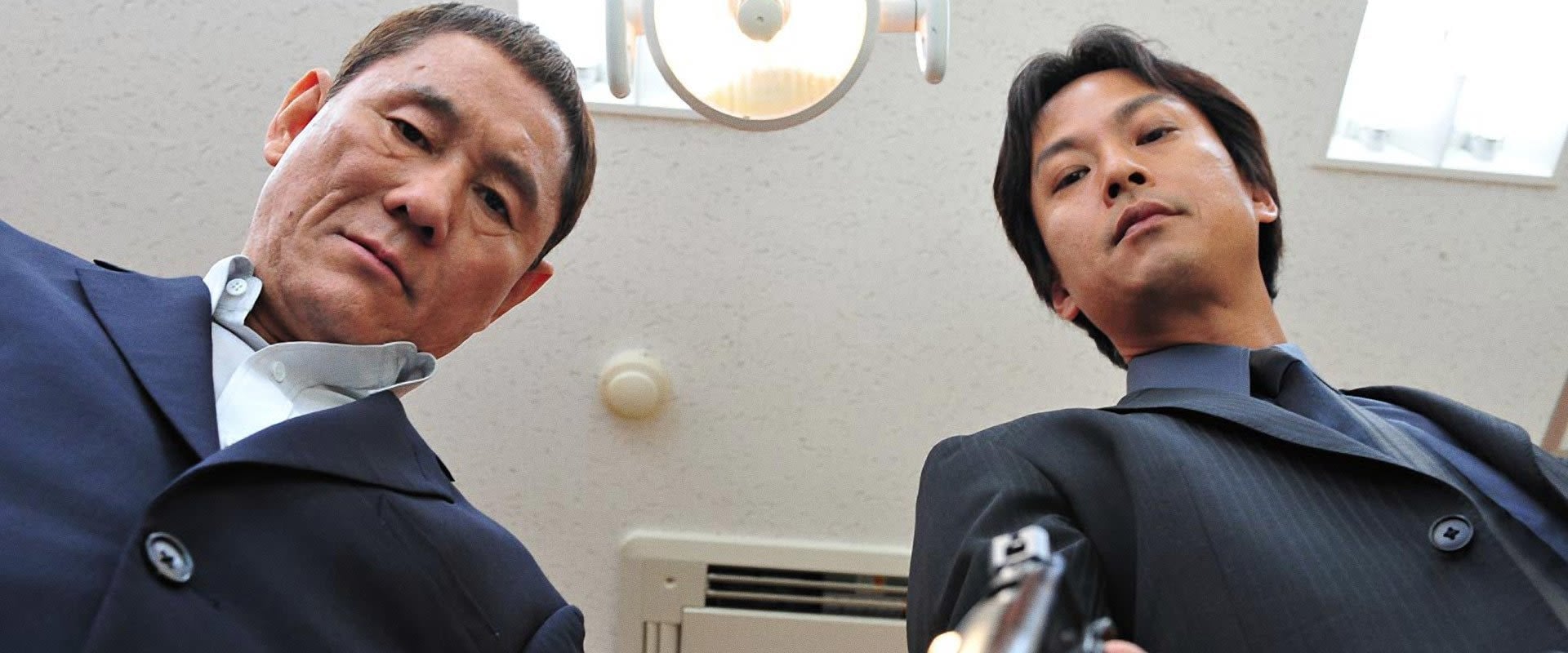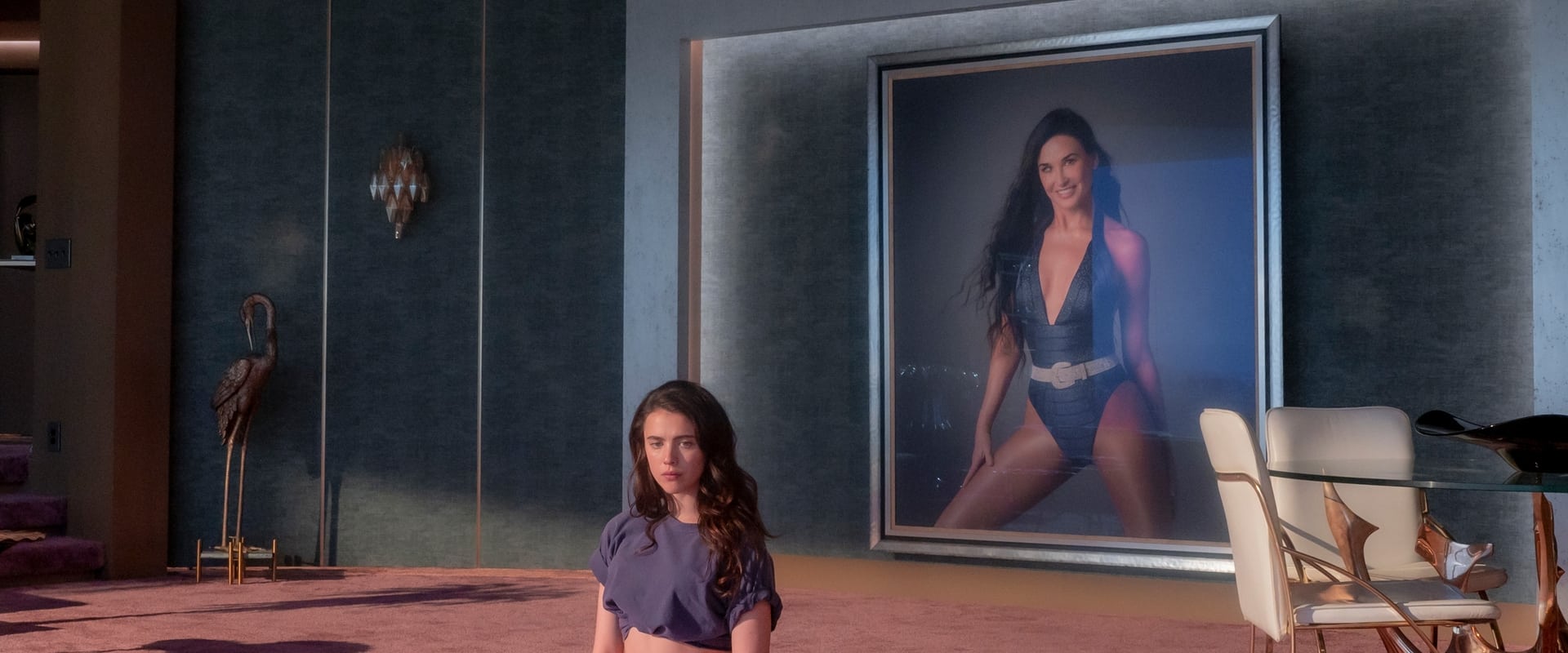Beyond Outrage—Takeshi Kitano’s sledgehammer sequel, a movie that swings with both the assured brutality of a mob execution and the abstract rigor of a calligraphic brushstroke. Here, Kitano isn’t merely following up his 2010 "Outrage," he’s detonating its aftermath, spraying the screen with ricocheting betrayals, power grabs, and—like some kabuki bloodletting—splashes of crimson artistry. If "Outrage" gave us an acid bath in internecine yakuza plotting, "Beyond Outrage" is the industrial-strength sequel, boiling the genre down to its ruthless chemical core.
Kitano himself, as the battered but unbroken Otomo, stalks through the film with the weariness of a war god forced out of retirement—less a phoenix rising than an old panther with scars, prowling among upstart hyenas. Otomo in this film is no longer just a cog in the yakuza machine, but the grizzled survivor hellbent on disassembling the apparatus bolt by bolt. And he's flanked by a supporting cast that bristles with menace: Ryo Kase’s Kimura, once a snarling nemesis and now an uneasy ally, keeps the plot juddering forward with a tautness that verges on the tragicomic. Everyone here seems one gunshot away from becoming pure muscle memory.
But the real snake pit is Takeshi’s diplomatic masterstroke: the irrepressibly greasy detective Kataoka, played with wily relish by Fumiyo Kohinata. If ever a character wore the badge like a license to orchestrate chaos, it’s Kataoka. His brand of law enforcement—lighting fuses between rival syndicates, pitting the Sanno-kai and Hanabishi-kai against each other like dogs in an alley—adds a streak of black comedy to the carnage, as if Kitano pried open the yakuza film’s skull and lobotomized it for our amusement.
There's a curious poetry in Kitano’s violence, a choreography as elegant as it is merciless. Where Hollywood would underline every punch and bullet with swelling strings, Kitano’s aesthetic is cooler, imbued with the pitiless humor of fate. His camera lingers over the drab, autonomous interiors—the refrigerated hotel suites, the gray urban skies—punctuated only by the occasional, painterly burst of arterial red. The violence is intimate, pulpy, and staged with the matter-of-factness of brushing crumbs from a table, all set to a thumping, occasionally misbegotten rock score that sometimes makes you flinch for all the wrong reasons. When the soundtrack goes off-key—electrifying gunfights pumped up like ill-timed karaoke in a funeral parlor—you wonder whether Kitano is winking at the genre or giving us the finger.
What’s most striking is how "Beyond Outrage" expands the battlefield: "Outrage" was a snake pit feeding on its own tail; in "Beyond Outrage" the tail becomes a national hydra, legendary syndicates swallowing one another like mythic beasts. The choreography of shifting allegiances and knife-twisting betrayals is intricate—a beguiling tapestry even as it grows snarled and unwieldy. It’s a chess match where every piece is rigged to explode.
But for all its viscera and Vermeer-like compositions of imminent doom, "Beyond Outrage" is not without its roughness. Dialogue tumbles over itself, as characters lob jawbreakers of exposition across increasingly Byzantine plotlines. For the uninitiated, the lore and lorettes of yakuza politicking may induce a kind of polite, baffled nausea; one feels at times like a guest at a criminal family reunion, unable to remember which cousin stabbed whose uncle at last year’s barbecue.
Yet that’s the point: Kitano doesn’t smooth the edges, he sharpens them, inviting us to recoil, to laugh, to gasp. His brand of poetic fatalism is never far from slapstick, and it is this tightrope between existential horror and deadpan absurdity that makes his work so thrillingly alive.
"Beyond Outrage" isn’t perfect—let’s not canonize mess for genius’s sake. The occasional stylistic misfire or narrative clutter is just another scar on a body already etched by violence. But it’s a glorious, blood-splattered waltz—one where the music is sometimes off-beat, but the dancers never miss a step. It is, if anything, reassuring that in an age of prepackaged pulse-pounders, a director like Kitano can still make a gangster film that pulses with both primordial chaos and the cool, methodical logic of revenge.
By the time the credits roll, Kitano has given us not just another yakuza grindhouse, but an existential parable with fangs—and left us breathless for the trilogy’s promised apocalypse. For those unafraid to get a little blood on their shoes, "Beyond Outrage" is a decadent, dangerous treat—a must for genre devotees, and an acid test for the rest.


